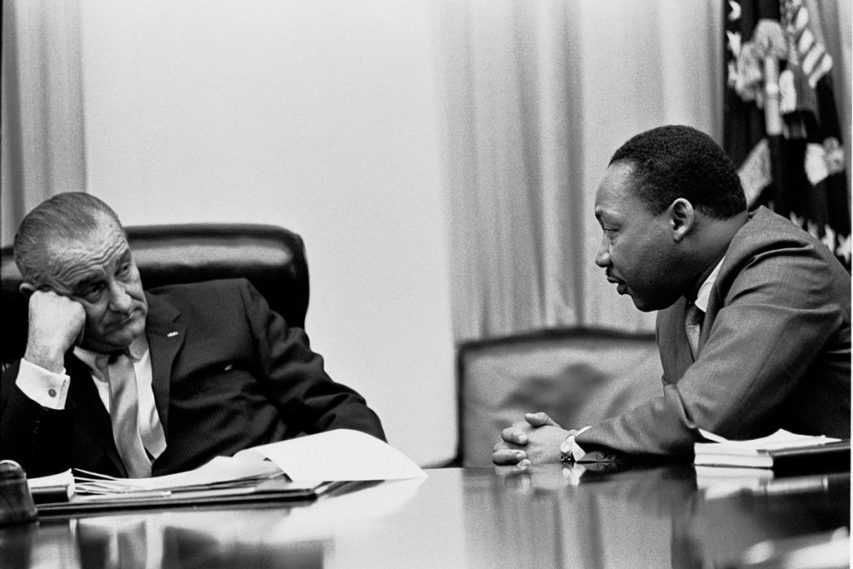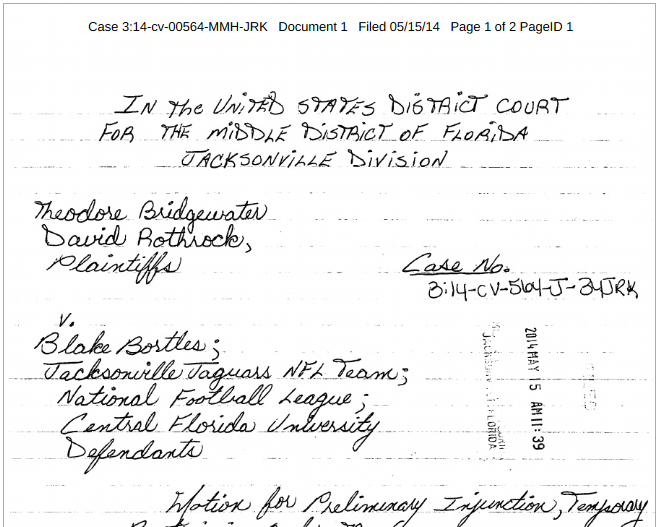Stephen Smith discusses the struggle of scholars specializing in the life and works of Martin Luther King, Jr. to cope with new revelations about the civil rights leader:

President Lyndon B. Johnson meets with Martin Luther King, Jr. in the White House Cabinet Room, 18 March 1966.
Photo by Yoichi Okamoto via Wikimedia Commons.
These are difficult days for students of Martin Luther King, Jr. The man many of us have dedicated long months and years to researching, often out of a profound sense of respect, is facing an allegation of laughing and even offering advice while a fellow Baptist minister raped a woman in a Washington, D.C. hotel room in January 1964.
The source of this explosive claim is a trove of newly released FBI surveillance documents unearthed by the dean of MLK historians himself, David J. Garrow, author of The FBI and Martin Luther King: From “Solo” to Memphis and the Pulitzer Prize-winning biography on King, Bearing the Cross.
Since the article detailing Garrow’s new findings came out at the end of May in the British magazine Standpoint, Garrow has taken more of a pounding in the press than King. No surprises there, perhaps. Like those now criticizing Garrow, I desperately want to believe that the 55-year-old allegation is a trumped-up product of the FBI’s “viciously negative attitude” toward King, as Garrow described it in “Solo” to Memphis — a book that earned him the Bureau’s enmity prior to its publication in 1981.
The record, however, is also pretty clear that King relieved the crushing stress of daily death threats and the insatiable demands of the civil rights movement with women and liquor. To his credit, King was the first to admit he was far from perfect as America’s “moral leader” — but this far?
Much of the criticism that Garrow is now facing over the article is focused on the validity of FBI evidence concerning King’s sexual activities, namely the bombshell assertion made by FBI agents spying on King in 1964 that he “looked on, laughed and offered advice” during the reported sexual assault (which, as Garrow has since underscored, the agents listening in did nothing to stop). This allegedly took place in two Washington, D.C. hotel rooms rented to King and four other Baptist ministers, although the controversial claim is made in a handwritten note appended to a summary of the FBI’s microphone surveillance.
Garrow argues that “without question” the handwritten annotation would have been added with both the original surveillance recording and a full transcript of the recording at hand. He adds that Justice Department investigators who reviewed both the tapes and transcripts in 1977 confirmed the accuracy of the FBI’s claims. The tapes and transcripts, along with the rest of the fruits of the FBI’s intensive electronic surveillance of King, were subsequently sealed by a court order until Jan. 31, 2027.
I know Garrow and I know his respect for the man he calls “Doc” runs deep, and this is not an allegation he would carelessly report. Some of his detractors have called him “irresponsible” for running with it without access to the original tapes and transcripts, but Garrow has at least 40 years of experience working with primary sources produced by the FBI’s intensive surveillance of King. If anyone can tell what smells off and what doesn’t, it’s him.






